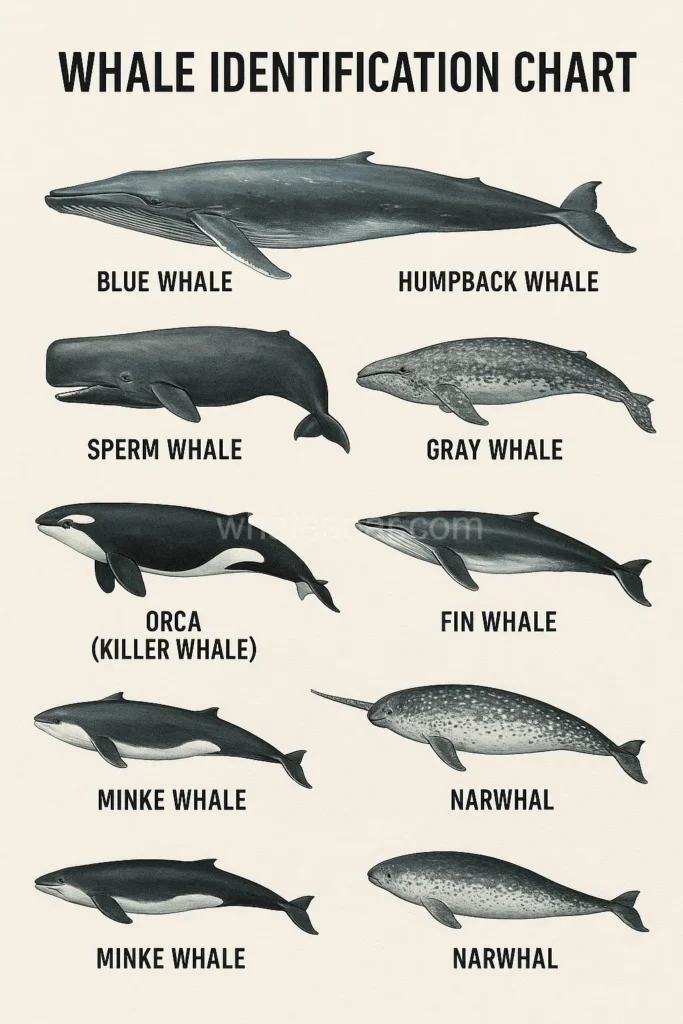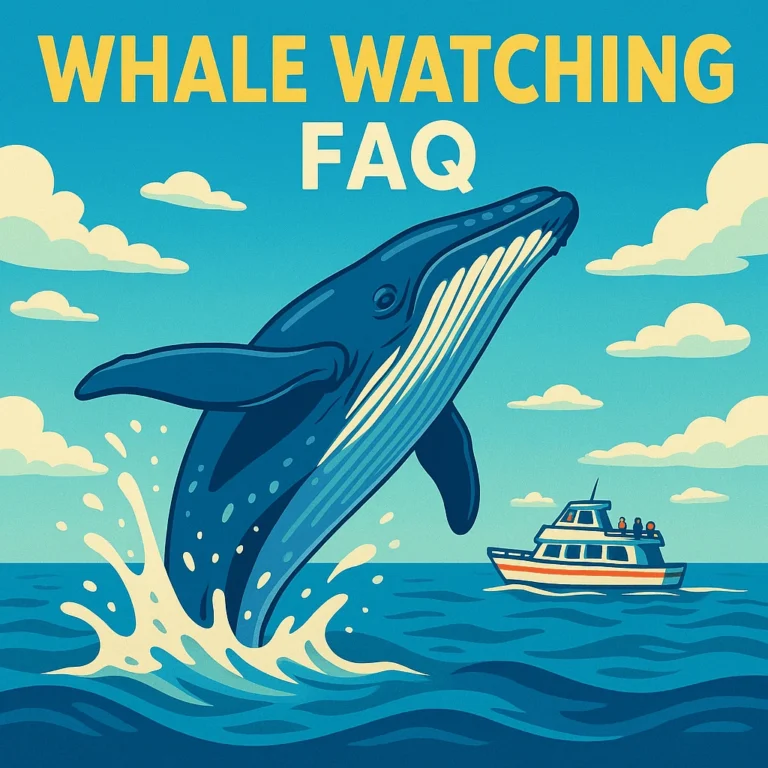Are you planning an unforgettable ocean adventure? These essential whale watching FAQ will guide you through everything — from the best time to go, what to bring, and how to ensure an ethical experience. Whether you’re watching from the coast or booking a boat tour, this guide is packed with expert whale watching FAQ to help you make the most of your journey.
❓ What is the best time of year to go whale watching?
The ideal time depends on your destination. However, understanding migration seasons significantly boosts your chances of seeing whales:
- Alaska & Pacific Northwest – June to September
- California – December to April (gray whales), May to October (blue whales)
- East Coast (Cape Cod, Maine) – April to October
- Hawaii – December to April
👉 Therefore, visit during peak migration months for optimal sightings and pleasant weather.
❓ Can I see whales from the shore?
Yes, you certainly can! In fact, several places around the world offer excellent viewing spots without needing a boat. For example:
- 🌉 Santa Barbara Pier (California)
- 🏞️ Cape Breton (Nova Scotia)
- 🌄 Big Sur Cliffs (California)
🔭 Additionally, bringing binoculars can help you spot tail slaps or spouts from a distance.
❓ What types of whales can I expect to see?
This depends on the region. Nevertheless, some commonly sighted whales include:
- 🐋 Humpbacks – known for their acrobatic breaches
- 🐳 Gray whales – often seen migrating along coastlines
- 🔵 Blue whales – the largest animals on Earth
- 🦈 Orcas – frequently spotted in the Pacific Northwest and Norway
💡 Furthermore, each humpback has a unique tail pattern — like a fingerprint.

❓ Do I need to book a tour in advance?
Yes, and here’s why. During peak season, spots fill up fast. Booking in advance:
✔️ Guarantees your seat
📅 Provides time flexibility (sunrise/sunset tours)
💰 Unlocks discounts and private options
🎯 Moreover, many top tours are led by marine biologists, offering deeper insight.
🔗 Compare top-rated whale tours here
❓ Are whale watching tours safe?
Definitely. Today’s tours are designed with safety and sustainability in mind.
✅ Reliable tour companies typically:
- Follow eco-certifications like “Be Whale Wise”
- Employ skilled captains and trained guides
- Provide life vests and safety briefings
🌊 If you’re prone to motion sickness, morning tours are usually calmer.
❓ What should I bring on a whale watching trip?
To ensure a comfortable and enjoyable trip, you should bring:
🧥 A windproof jacket
🧢 A hat and sunscreen
📷 A camera with zoom lens
💧 A refillable water bottle
💊 Motion sickness tablets
🎒 In addition, a power bank, light snacks, and waterproof bag are handy extras.
❓ What if I don’t see any whales?
While sightings are common, they’re not always guaranteed. That said, many companies offer a sighting guarantee — meaning you can join another tour for free.
🐬 Moreover, even on “quiet” days, you might still see:
- Dolphins
- Seals or sea lions
- Seabirds
📌 Therefore, always read the company’s rebooking policy before booking.
❓ How long does a whale watching tour last?
Most tours last 2–4 hours. However, duration may vary depending on location.
🛥️ You’ll also find:
- Scenic half-day cruises
- Sunset and twilight trips
- Educational tours with expert commentary
⏳ If you’re in a hurry, opt for a 90-minute express tour.
❓ Is whale watching ethical?
Yes — but only when conducted responsibly. Responsible whale watching promotes conservation and public awareness.
🌱 For ethical tours, look for companies that:
- Keep a respectful distance from wildlife
- Avoid crowding or chasing animals
- Donate to marine research or nonprofits
👉 In short, your choice supports sustainable tourism and ocean protection.
❓ Can I bring kids on a whale tour?
Absolutely! Whale watching is exciting and educational for children — especially those aged 5 and up.
👶 To ensure they have a great time:
- Pack snacks and sun protection
- Let them try binoculars
- Encourage questions and curiosity
🎖️ In fact, some tours offer “Junior Marine Biologist” badges and activity books.
✅ Still Have Questions?
📧 Email us at: support@whalesoar.com

